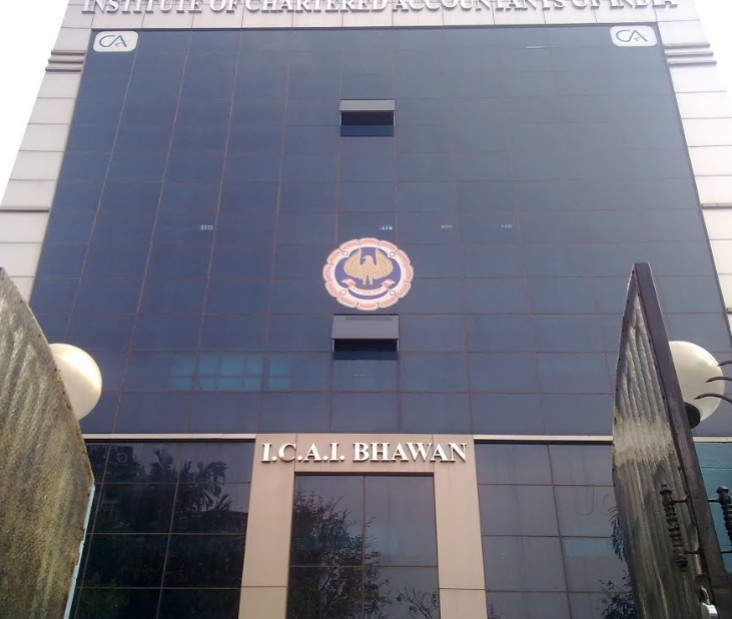The broad framework of incurring of Corporate Social Responsibility (CSR) expenses has been provided in Section 135 of the Companies Act, 2013, Schedule VII of the Act and Companies (CSR Policy) Rules, 2014.
The Board of a Company has to ensure that the company spends in every financial year at least 2% of the average net profits of the company made during the three immediately preceding financial years or where the company has not completed the period of three financial years since its incorporation, during such immediately preceding financial years, on Corporate Social Responsibility (CSR) in pursuance of its policy in this regard.
The Ministry of Corporate Affairs vide General Circular No. 14 / 2021 dated 25th August 2021 has issued the Frequently Asked Questions (FAQs) on Corporate Social Responsibility (CSR). These FAQs have been issued in suppression of clarifications and FAQs issued vide General Circular no. 21/2014 (dated 18th June 2014), 36/2014 (dated 17th September 2014), 01/2016 (dated 12th January 2016) ,05/2016 (dated 16th May 2016), clarification issued vide letterdated 25.01.2018 and General Circular no. 06/2018 (dated 28th May 2018).
It has been stated in the Circular that a number of significant developments have taken place. The Ministry has notified the amendments in Section 135 of the Act as well in the CSR Rules on 22nd January 2021 with an aim to strengthen the CSR ecosystem, by improving disclosures and by simplifying compliances. In response to such amendments, the Ministry has received several references and representations from stakeholders seeking clarifications on the various issues related to CSR.
Some of the key FAQs are given below for ready reference of our readers:
A company satisfying any of the following criteria during the immediately preceding financial year is required to comply with CSR provisions specified under section 135(1) of the Companies Act, 2013 read with the Companies (CSR Policy) Rules, 2014 made thereunder:
(i) net worth of rupees five hundred crore or more, or
(ii) turnover of rupees one thousand crore or more, or
(iii) net profit of rupees five crore or more.
CSR is a Board-driven process. The responsibilities of the Board of a CSR-eligible company, inter-alia, include the following —
(i) approve the CSR policy;
(ii) disclose contents of such policy in its report and also place it on the company’s website, if any;
(iii) ensure that the activities included in the CSR policy are undertaken by the company;
(iv) ensure that the company spends, in every financial year, at least two per cent of the average net profits of the company made during the three immediately
preceding financial years;
(v) satisfy itself regarding the utilisation of the disbursed CSR funds; and
(vi) if the company fails to spend at least two per cent of the average net profits of the company, the Board shall, in its report made under clause (o) of sub-section (3) of section 134, specify the reasons for not spending the amount and transfer the unspent CSR amount as per provisions of sections 135(5) and 135(6) of the Act.
The average net profit for the purpose of determining the spending on CSR activities is to be computed in accordance with the provisions of section 198 of the Act and will also be exclusive of the items given under rule 2(1)(h) of the Companies (CSR Policy) Rules, 2014. Section 198 of the Act specifies certain additions/deletions (adjustments) to be made while calculating the net profit of a company (mainly it excludes capital payments/receipts, income tax, set-off of past losses). Profit Before Tax (PBT) is used for computation of net profit under section 135 of the Act.
Yes, the excess amount can be set off against the required 2% CSR expenditure up to the immediately succeeding three financial years subject to compliance with the conditions stipulated under rule 7(3) of the Companies (CSR Policy) Rules, 2014. This position is applicable from 22nd January, 2021 and has a prospective effect. Thus, no carry forward shall be allowed for the excess amount spent, if any, in financial years prior to FY 2020-21.
No, the provision relating to contribution to corpus as admissible CSR expenditure has been amended and the contribution to corpus of any entity is not an admissible CSR expenditure w.e.f. 22nd January, 2021.
No, the amount spent by a company towards CSR cannot be claimed as business expenditure. Explanation 2 to section 37(1) of the Income Tax Act, 1961 which was inserted through the Finance Act, 2014 provides that any expenditure incurred by an assessee on the activities relating to CSR referred to in section 135 of the Companies Act, 2013 shall not be deemed
to be an expenditure incurred by the assessee for the purposes of the business or profession.
No specific tax exemptions have been extended to CSR expenditure. The Finance Act, 2014 also clarifies that expenditure on CSR does not form part of business expenditure.
CSR expenditure can be incurred in multiple modes:
(i) ‘Activities route’, which is a direct mode wherein a company undertakes the CSR projects or
programmes as per Schedule VII of the Act, either by itself or by engaging implementing agencies as prescribed in Companies (CSR Policy) Rules, 2014
(ii) ‘Contribution to funds route’, which allows the contributions to various funds as specified in Schedule VII of the Act.
(iii) Contribution to incubators and R&D projects, as specified in item (ix)(a) and contribution to institutes/organisations, engaged in research and development activity, as specified under item (ix)(b)of Schedule VII of the Act.
Contributions to the following funds shall be admissible as CSR expenditure:
(i) Swachh Bharat Kosh
(ii) Clean Ganga Fund
(iii) Prime Minister’s National Relief Fund (PMNRF)
(iv) Prime Minister’s Citizen Assistance and Relief in Emergency Situations Fund (PM CARES Fund)
(v) Any other fund set up by the Central Government and notified by the Ministry of Corporate Affairs, for socio-economic development and relief and welfare of the Scheduled Castes, the Scheduled Tribes, other backward classes, minorities and women.
monetized and accounted for under the head of ’CSR expenditure’?
No, involvement of employees in CSR projects of a company cannot be monetized. Contribution and involvement of employees in CSR activities of the company will no doubt generate interest/pride in CSR work and promote transformation from Corporate Social
Responsibility (CSR) as an obligation to Socially Responsible Corporate (SRC) in all aspects of their functioning. Companies, therefore, should be encouraged to involve their employees in CSR activities.
Rule 2(1)(d) of the Companies (CSR Policy) Rules, 2014 defines CSR and the following activities are specifically excluded from being considered as eligible CSR activity:
(i) Activities undertaken in pursuance of normal course of business of the company.
However, exemption is provided for three financial years, till FY 2022-23, to companies engaged in R&D activities for new vaccines, drugs, and medical devices in their normal course of business, related to COVID19. This exclusion is allowed only in case the companies are engaged in R&D in collaboration with organisations as mentioned in item (ix) of Schedule VII
and disclose the same in their Board reports.
(ii) Activities undertaken outside India, except for training of Indian sports personnel representing any State or Union Territory at national level or India at international level;
(iii) Contribution of any amount, directly or indirectly, to any political party under section 182 of the Act;
(iv) Activities benefitting employees of the company as defined in section 2(k) of the Code on Wages, 2019;
(v) Sponsorship activities for deriving marketing benefits for products/services;
(vi) Activities for fulfilling statutory obligations under any law in force in India.
Pursuant to rule 4 of the Companies (CSR Policy) Rules, 2014 a company may undertake CSR activities through following three modes of implementation:
(i) Implementation by the company itself
(ii) Implementation through eligible implementing agencies as prescribed under sub-rule (1) of rule 4.
(iii) Implementation in collaboration with one or more companies as prescribed under sub-rule (4) of rule 4.
Ongoing project has been defined under rule 2(1)(i) of the Companies (CSR Policy) Rules, 2014 as:
(i) a multi-year project, stretching over more than one financial year;
(ii) having a timeline not exceeding three years excluding the year of commencement;
(iii) includes such project that was initially not approved as a multi-year project but whose duration has been extended beyond one year by the Board based on reasonable justification.
The project should have commenced within the financial year to be termed as ‘ongoing’. The intent is to include a project which has an identifiable commencement and completion dates. After the completion of any ongoing project, the Board of the company is free to design any
other project related to operation and maintenance of such completed projects in a manner as may be deemed fit on a case-to-case basis.
Note: The term ‘year’ refers to financial year as defined in section 2(41) of the Act
(for instance in FY 2019-20) be classified as an ongoing project under section
135(6) of the Act. Is the unspent amount of previous financial years also required to be
transferred to the Unspent CSR Account?
No, the provisions related to ongoing projects have come into effect from 22nd January 2021, i.e., from FY 2020-21 onwards. The said provisions are prospective in effect and not applicable to projects of previous financial years.
Further, the Board of the company is free to decide the treatment of the unspent CSR amount of previous financial years prior to FY 2020-21. The Board can either transfer the amount to ‘Unspent CSR Account’ or continue as per the previous accounting practices adopted by the company.
Rules, 2014?
Yes, as per rule 9 of the Companies (CSR Policy) Rules, 2014, all CSR projects approved by the Board are required to be disclosed on the website of the company, if any, for public access.
For complete FAQs the Circular as give below be read / downloaded:
***
Follow us for free tax updates : facebook Twitter
Subscribe to our portal and get FREE Tax e-books, quality articles and updates on your e-mail.
Resolve your GST queries from national level experts on GST free of cost.
TW Editorial Team comprises of team of experienced Chartered Accountants and Advocates devoted to spread the knowledge of GST amongst the various stakeholders.




